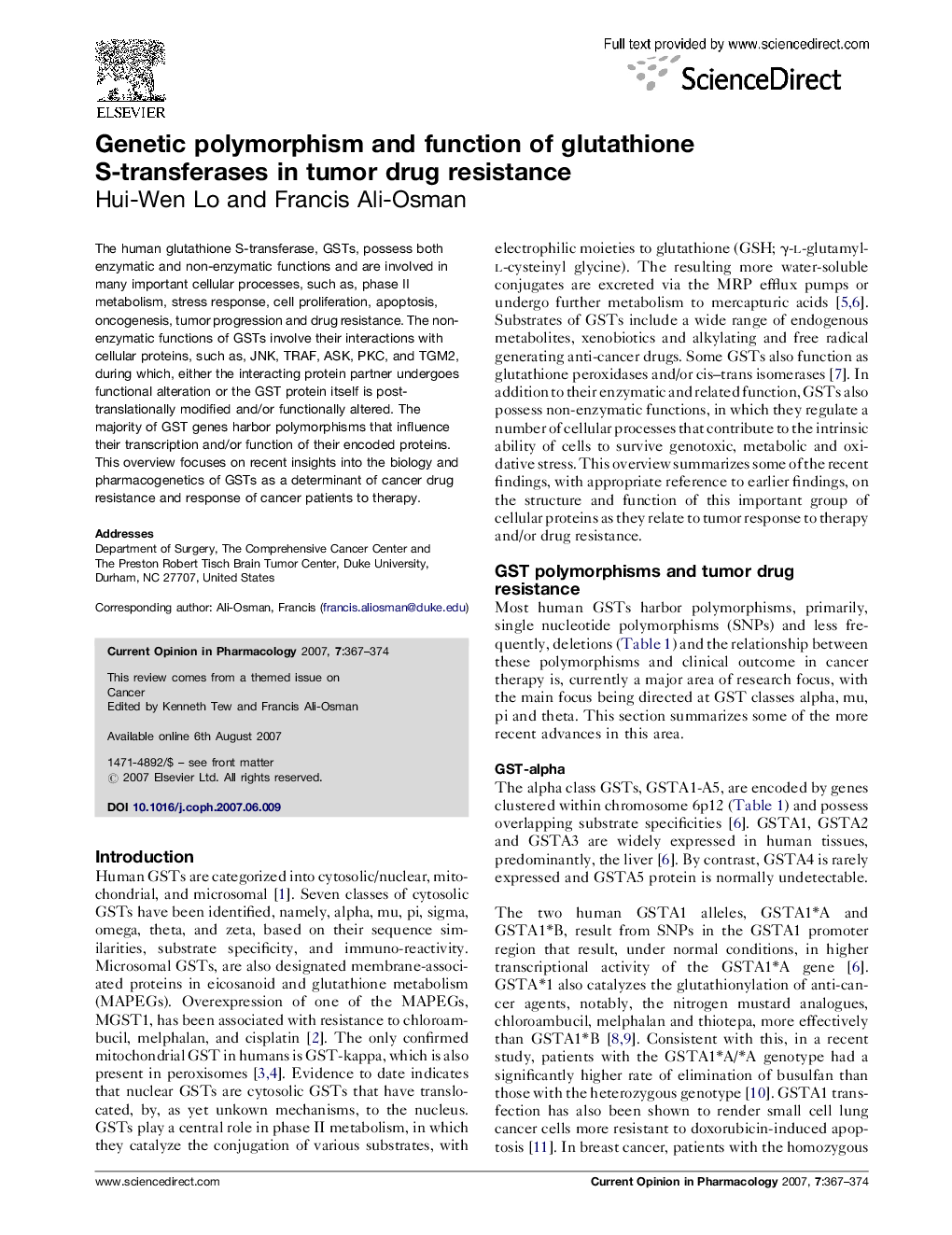| Article ID | Journal | Published Year | Pages | File Type |
|---|---|---|---|---|
| 5826596 | Current Opinion in Pharmacology | 2007 | 8 Pages |
Abstract
The human glutathione S-transferase, GSTs, possess both enzymatic and non-enzymatic functions and are involved in many important cellular processes, such as, phase II metabolism, stress response, cell proliferation, apoptosis, oncogenesis, tumor progression and drug resistance. The non-enzymatic functions of GSTs involve their interactions with cellular proteins, such as, JNK, TRAF, ASK, PKC, and TGM2, during which, either the interacting protein partner undergoes functional alteration or the GST protein itself is post-translationally modified and/or functionally altered. The majority of GST genes harbor polymorphisms that influence their transcription and/or function of their encoded proteins. This overview focuses on recent insights into the biology and pharmacogenetics of GSTs as a determinant of cancer drug resistance and response of cancer patients to therapy.
Related Topics
Life Sciences
Neuroscience
Cellular and Molecular Neuroscience
Authors
Hui-Wen Lo, Francis Ali-Osman,
